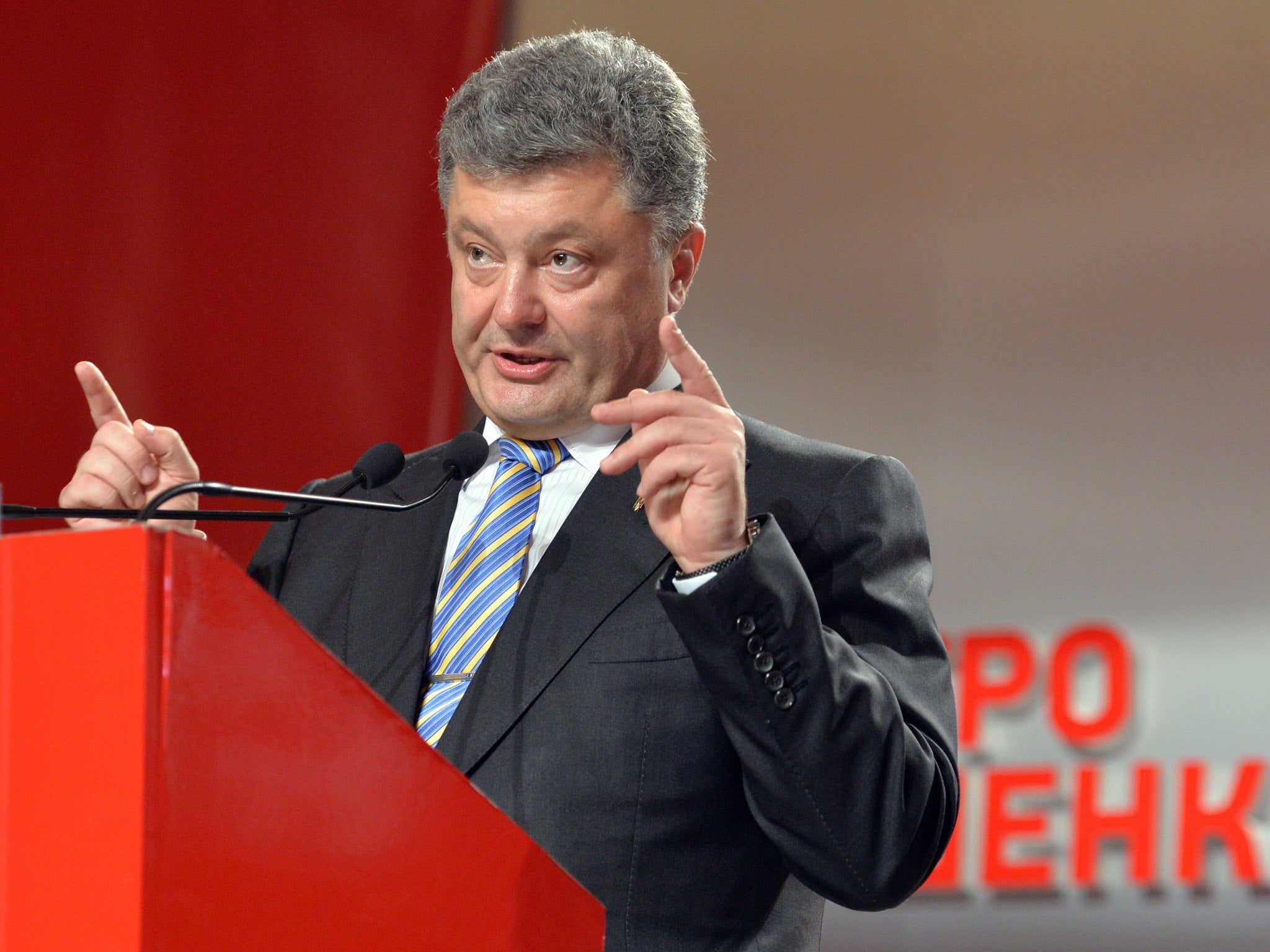Ukraine crisis: President Petro Poroshenko to propose cease-fire with pro-Russian separatists
The announcement came days after 49 members of the Ukrainian army died when their helicopter was shot down by pro-Russian rebels

Your support helps us to tell the story
From reproductive rights to climate change to Big Tech, The Independent is on the ground when the story is developing. Whether it's investigating the financials of Elon Musk's pro-Trump PAC or producing our latest documentary, 'The A Word', which shines a light on the American women fighting for reproductive rights, we know how important it is to parse out the facts from the messaging.
At such a critical moment in US history, we need reporters on the ground. Your donation allows us to keep sending journalists to speak to both sides of the story.
The Independent is trusted by Americans across the entire political spectrum. And unlike many other quality news outlets, we choose not to lock Americans out of our reporting and analysis with paywalls. We believe quality journalism should be available to everyone, paid for by those who can afford it.
Your support makes all the difference.The Ukrainian President has announced that he will propose a cease-fire with separatist rebels in the east of the country later this week - with the aim of ending violence that has plagued the country for months, according to local news reports.
In a statement at the start of a Security Council meeting on Monday, recently elected Poroshenko said he had set government forces the task of regaining full control of Ukraine's border with Russia.
He added that a temporary cease-fire would only be proposed when the border was secure, at which point efforts would be made to agree on a peace plan, according to Interfax news agency. He did not, however, disclose how long the truce he was proposing should last.
To declare a cease-fire "while the border is open would be irresponsible," added Porshenko, who was sworn in on 7 June.
Poroshenko said he was willing to negotiate with rebels; offer amnesty to fighters who did not have "blood on their hands"; and to protect the use of the Russian language.
He also proposed a jobs program, early parliamentary elections, and constitutional changes to offer the east a degree of decentralised of power.
Both Poroshenko and the interim government, who briefly ruled before him, have failed to suppress an insurgency by armed pro-Russian separatists in the east.
In April, the gradual seizure of government buildings by pro-Russian gunmen in the provinces of Donetsk and Slovyansk culminated in two internationally condemned referendums in which citizens voted for independence.
More than 300 government troops, rebels and civilians have been killed in fighting since then.
Peace in the region appeared a distant hope on Saturday, after pro-Russian rebels shot down a Ukrainian military aircraft. All 49 military personnel on-board were killed - making the attack the deadliest incident so far since Ukraine's pro-Russian former President Viktor Yanukovych was ousted in February.
The attack came at a crucial time for the new government in Kiev, as it balanced reports from Nato that Russian tanks had been spotted in Ukrainian territory against the positive re-seizure of the port city of Mariupol on Friday.
Poroshenko has been trying to win agreement for peace proposals, few details of which have been published. His efforts have included talks with a Russian envoy and a phone call with President Vladimir Putin.
Both Kiev and the West have accused Russia of arming the rebels in east Ukraine - a charge which Moscow denies.
Additional reporting by Reuters
Join our commenting forum
Join thought-provoking conversations, follow other Independent readers and see their replies
Comments